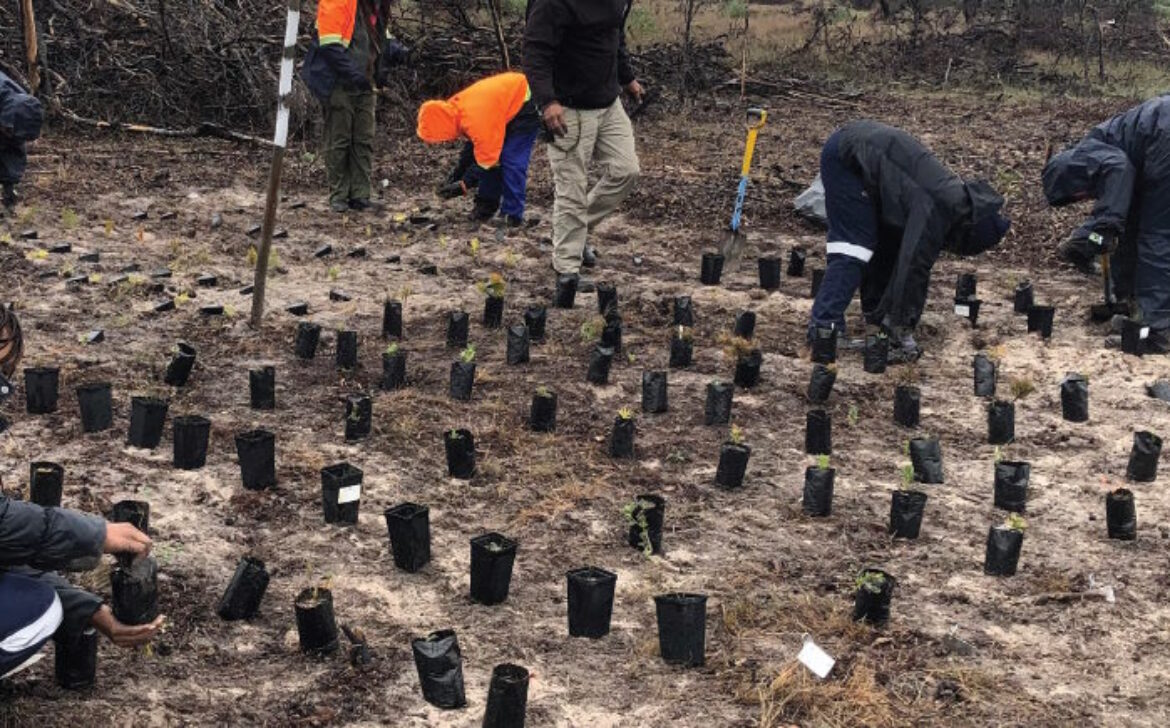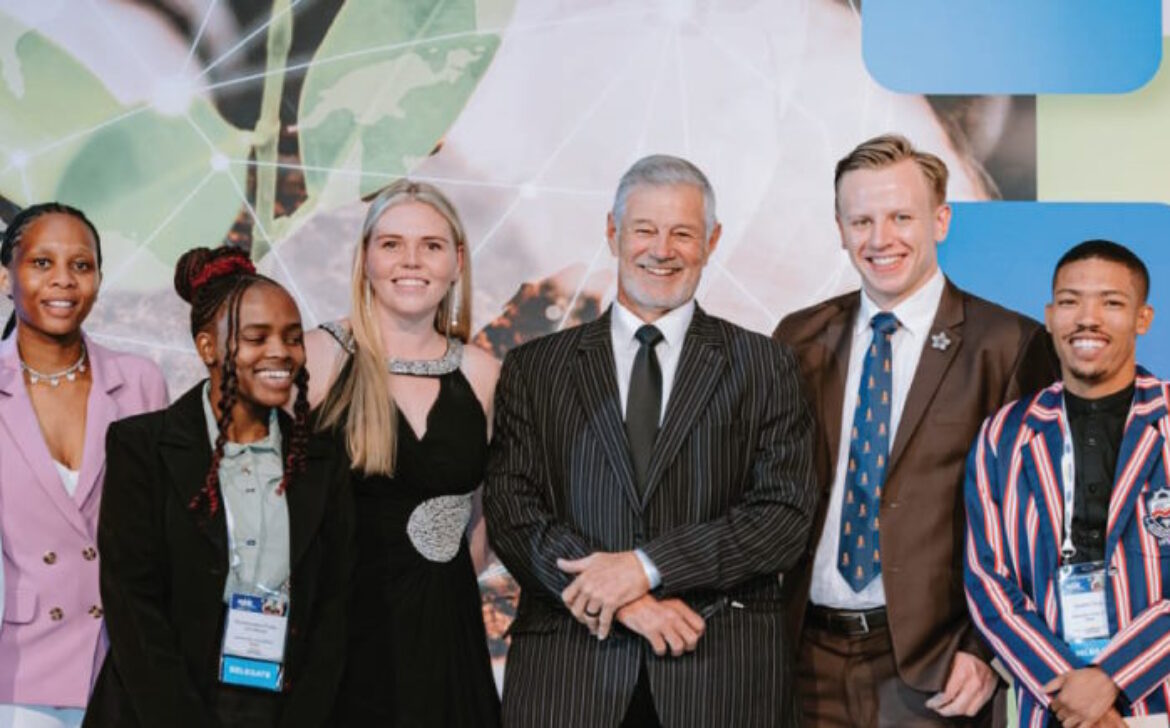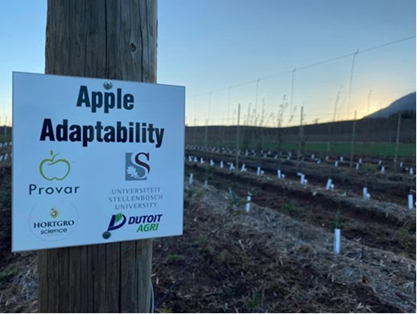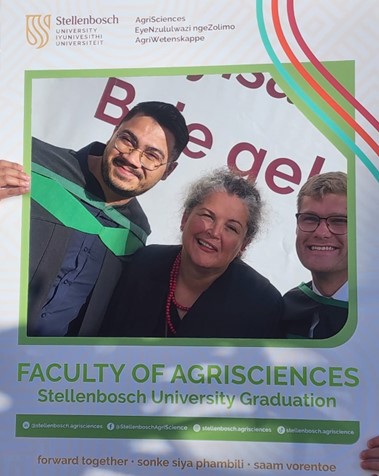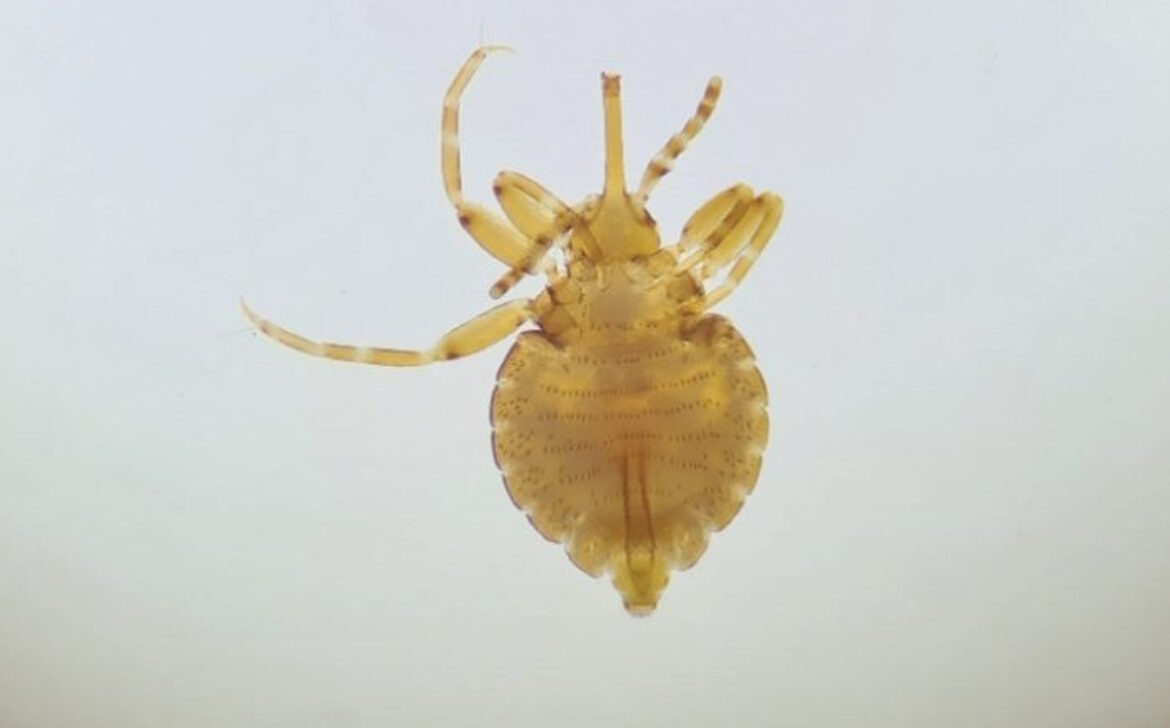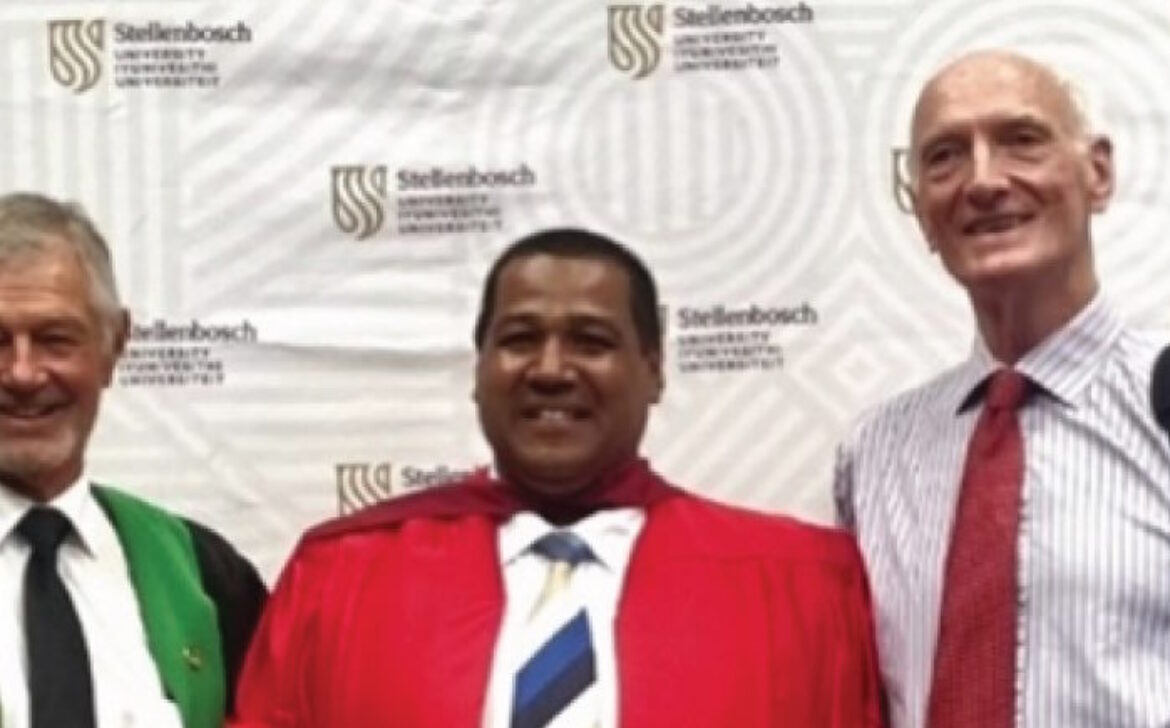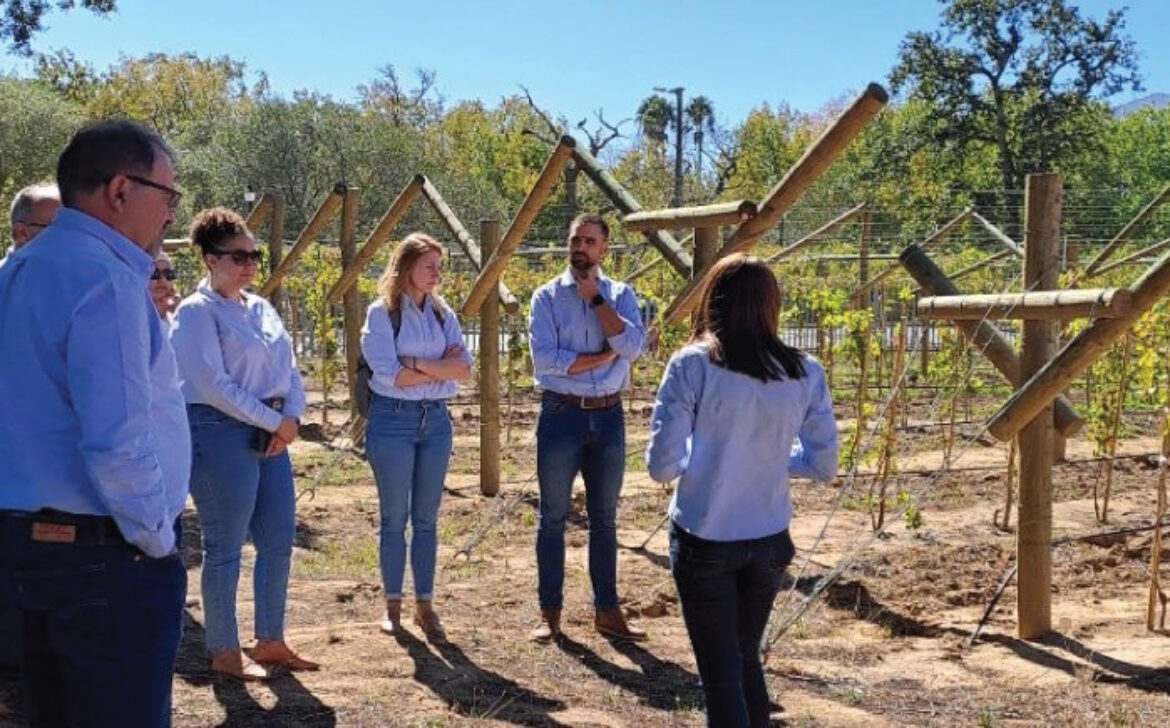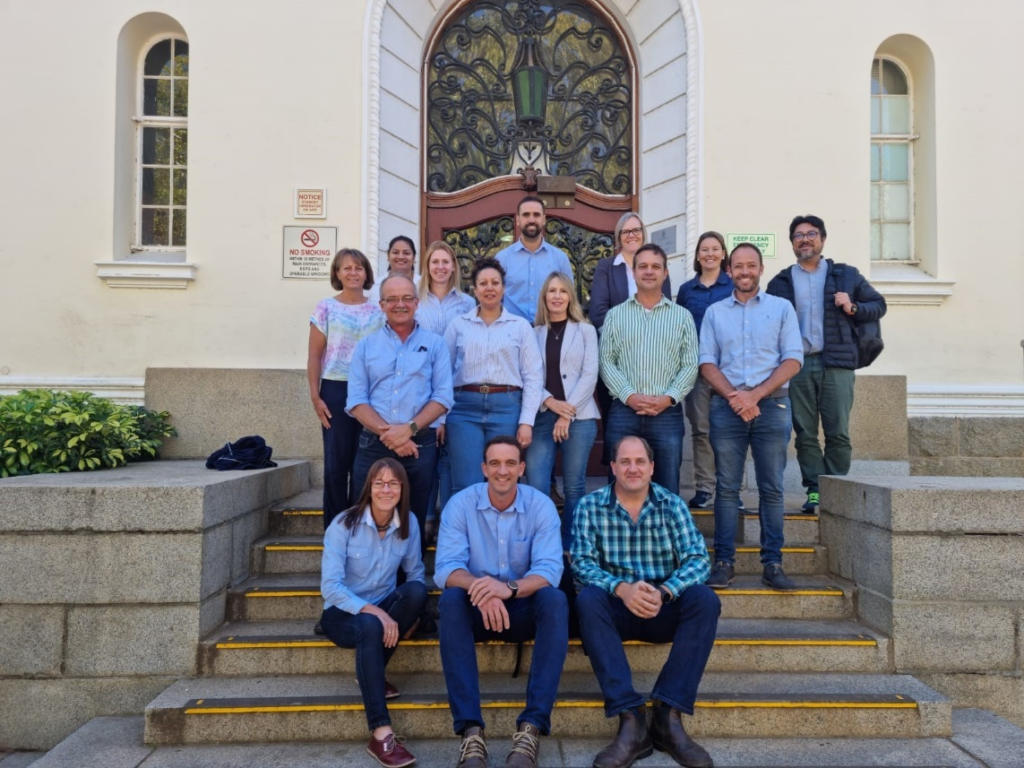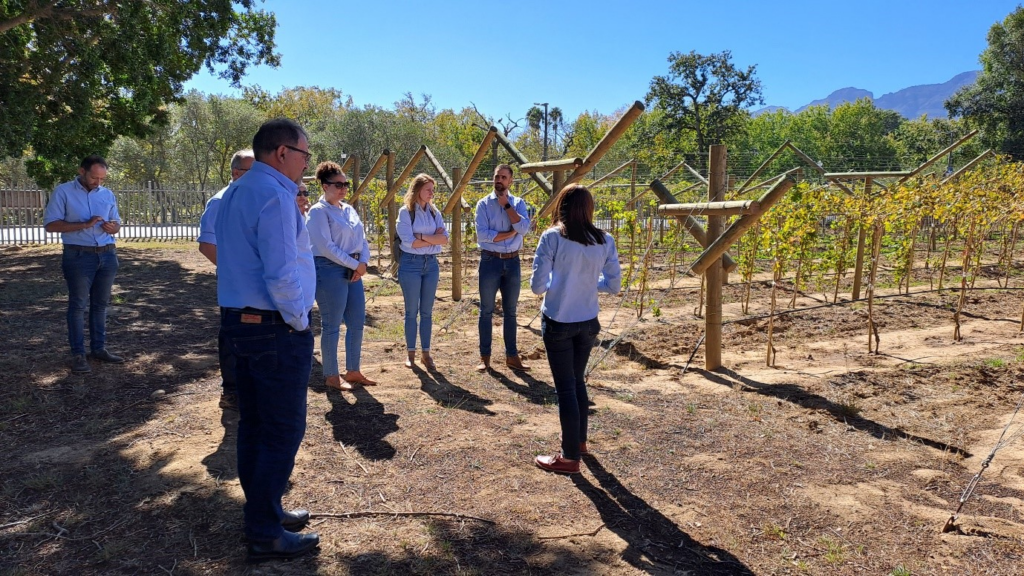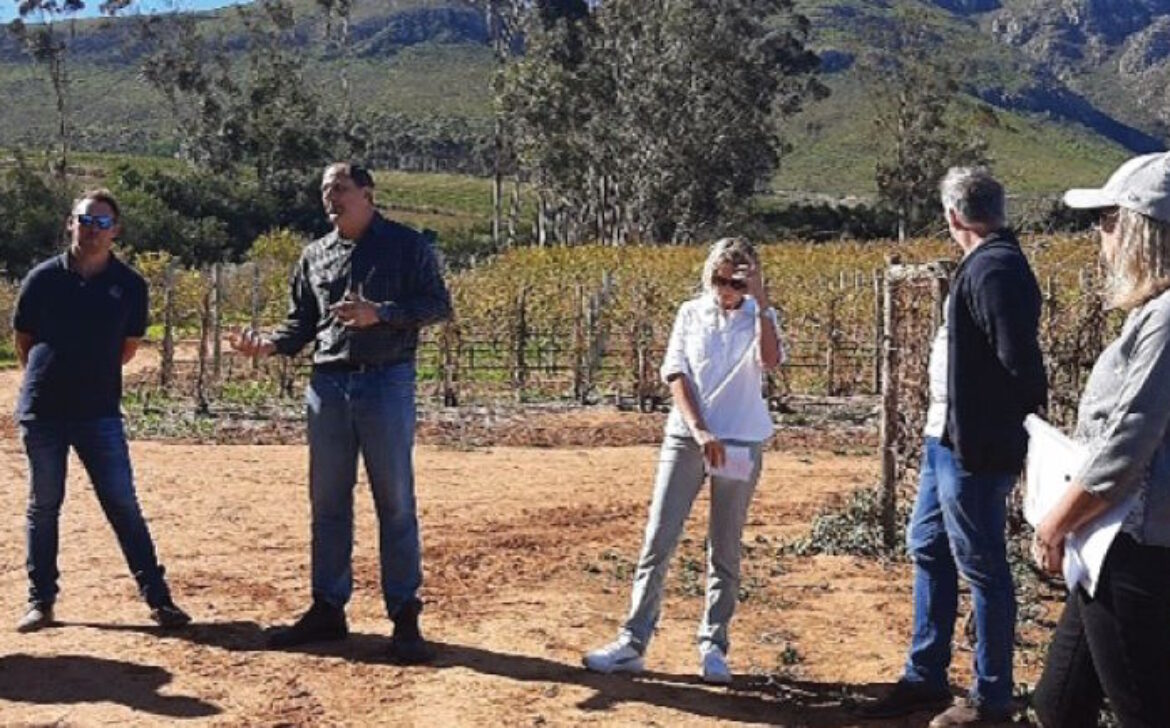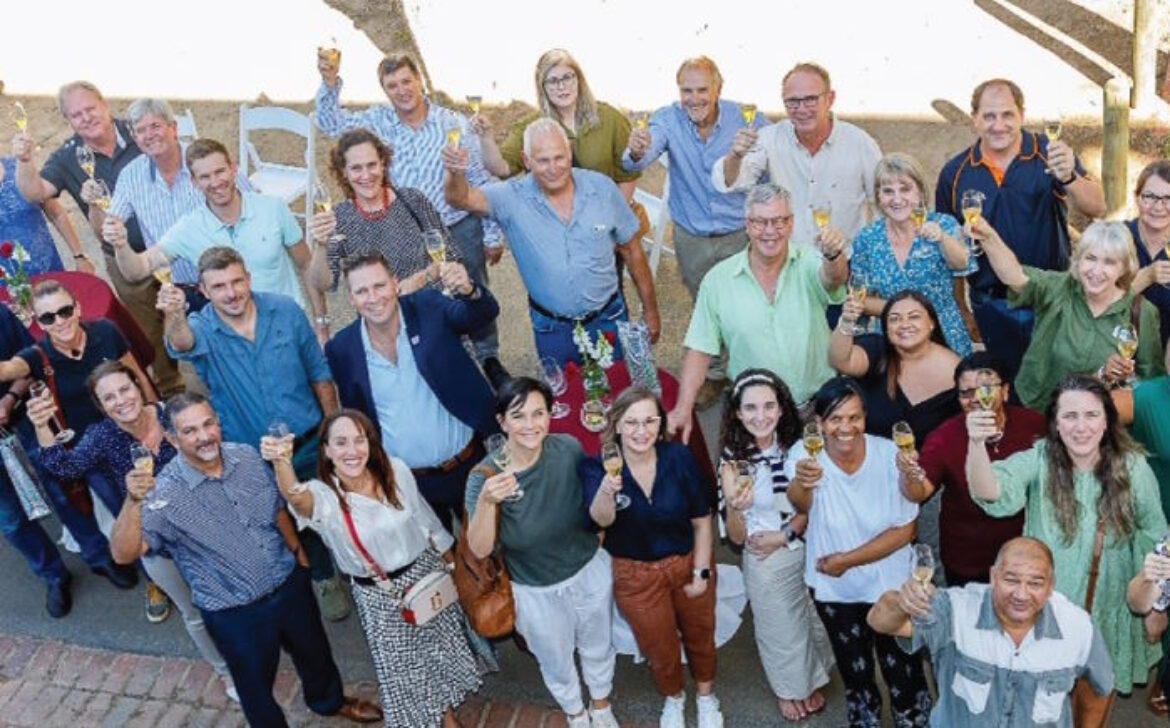Dr Malizukiswe Vincent Vacu is the recipient of a PhD in Genetics from Stellenbosch University,for research about the genes involved in photosynthesis in pigeon peas.
His 88-year-old grandmother, who raised, him, will be guest of honour at his graduation on 26 March 2024. She lives near Mount Frere in the Eastern Cape.
Just as plants need sunlight to photosynthesize and grow, so people need support, nurturing and motivation to blossom. For Stellenbosch University (SU) PhD graduate Dr Malizukiswe Vincent Vacu, his source of inspiration has always been his 88-year-old grandmother, Thembakazi MaKhuboni Vacu. That is why they just had to take an epic 1200km road trip together from the Eastern Cape to Stellenbosch, so that she could be guest of honour when he receives his doctorate in Genetics on 26 March 2024 during the annual SU March graduation ceremony. It was his grandmother’s first visit to the Cape region.
For his PhD in Genetics, the 36-year-old Dr Vacu identified and characterized which genes in pigeon peas (Cajanus cajan) are important to improve photosynthesis, and could subsequently be manipulated to improve the yield of this hardy legume crop.
He has since 2023 lectured in plant breeding and genetics in the Department of Plant Production, Soil Science, and Agricultural Engineering at the University of Limpopo in Polokwane. He enjoys the position thoroughly, as it allows him to pay forward many of the kindnesses shown to him over the years, by helping to chart the academic course of a next generation of scholars.
“I can pursue a career in academia because others before me made the decision to do the same. For that I am thankful. I want to help others to realise their goals too,” says the student-centred lecturer.
Earlier this year, he was appointed as a ministerial representative to the board of the South African Cultivar and Technology Agency (SACTA) by the national Minister of the Department of Agriculture, Land Reform, and Rural Development. SACTA is a national agency committed to ensuring food security through the development of new genetics and technology for open-pollinated crops.
Leadership roles seem to come naturally to Dr Vacu, who was Chairperson of the Science and Agriculture Student Society at Fort Hare in 2011, and who at SU served as a writing consultant at the Language Centre and is a former postgraduate representative of the SU AgriSciences Student Association (ASA).
“It’s probably because I am the eldest of four siblings. They often tell me that I’m very strict,” he reveals.
Family life
Their grandmother has been their constant pillar of strength, but especially so after their mother fell ill when Dr Vacu was still attending Mpindweni Junior Secondary School in Mpindweni village in Mount Frere. Money was always tight, with his grandmother working at a preprimary school before qualifying for a state-funded old age grant. She tried her best to raise them well according to her Christian principles, and to provide in their needs.
While Dr Vacu is the first among his siblings to complete a postgraduate degree, both of his brothers hold university degrees. His sister, the youngest, is currently completing her studies at Walter Sisulu University.
His academic life had a rocky start. First he went to school later than most – and then failed Grade 1. Through his grandmother’s support and motivation, he soon tackled schoolwork with flying colours, so much so that as a learner at Manzamnyama Senior Secondary he started dreaming of university. A magazine story he read while still a youngster, about the versatility of Malawi’s former president, Hastings Banda, further fuelled his aspirations and dreams.
Studies
Thanks to the financial support of a cousin, Masivuye Yaphi, who had already completed university studies, he could tackle his first year as a BSc Crop/Soil Sciences student at the University of Fort Hare. A NSFAS living allowance followed. Today Dr Vacu is paying this kindness forward too by supporting his three siblings’ respective university studies.
His decision to follow a career in agricultural sciences was motivated by conversations with an agricultural extension officer of the Eastern Cape Department of Agriculture who worked in Mpindweni and other villages around Mount Frere.
“To achieve optimal crop production, one must understand soils and to understand soils in an agricultural setup one must understand crops,” he says about the interplay between soils and crops.
Dr Vacu received his B.Sc. Crop/Soil Sciences degree cum laude from the University of Fort Hare in 2014.
“Given my family situation back home, I realized that I had no other choice but to study very hard,” says Dr Vacu, who always has a Plan A, B and Z ready when planning his life. “I early on realized that gaining a good education is the only sustainable solution to improve one’s position, and that you can very seldom move forward by merely trying to find a job after school.”
A bursary from the national Department of Agriculture, Land Reform and Rural Development (DALRRD) in 2015 took him to the northeastern parts of China where at the Jilin Agricultural University he completed a MSc in Crops Genetics and Breeding in 2018. His studies into the chilling tolerance of groundnuts (Arachis hypogaea L.) provided him with his first insights into ways to better breed legumes, and into plant genetics in general.
Pigeon pea research
He believes that classic breeding techniques that select for traits to be taken forward to improve aspects such as yield have reached a plateau, but that much can still be done by embracing the genetic aspects of plant biotechnology.
“New breeding technologies offer a targeted approach to crop improvement by precisely modifying crop genomes, ranging from single DNA base-pair alterations to the insertion or removal of multiple genes. One such option focuses on enhancing photosynthesis to increase crop yield, creating more water and nitrogen-efficient plant varieties,” Dr Vacu notes.
In 2020 he joined the ranks of the Institute for Plant Biotechnology (IPB) at the Department of Genetics in the Faculty of AgriSciences at Stellenbosch University to study the latter aspect in pigeon peas. He completed his PhD degree under the guidance of Dr Shaun Peters and Dr Bianke Loedolff.
His studies were funded by the National Research Foundation, as part of a project looking into ways to improve pigeon pea cultivation amid an increasingly warming world and growing global population. It is not yet farmed commercially in South Africa. He is already the 8th postgraduate student at SU to graduate thanks to this programme.
“Through our research, we want to show that there’s more to this hardy legume than we know at present. This pulse crop is eaten widely in Asia, the Caribbean and parts of Africa. It is also used as a forage or cover crop. It is called an ‘orphan crop’, because not much has yet been done in terms of research to understand which traits might be of importance to agriculture, food security and nutrition. Since its genome was sequenced, new avenues of research have opened up,” says Dr Peters, who is director of the SU IPB.
For media enquiries, please contact Dr Vacu at: + 2776 965 7551
Photo credit: Stefan Els
This press release was written by Engela Duvenage, on behalf of the Faculty of AgriSciences at Stellenbosch University.


